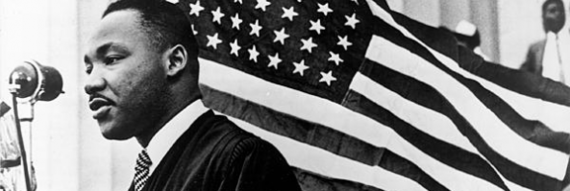"We must develop a federal program of public works, retraining, and jobs for all--so that none, white or black, will have cause to feel threatened. At the present time, thousands of jobs a week are disappearing in the wake of automation and other production efficiency techniques." Martin Luther King, Jr.
Pope Francis will be visiting Philadelphia for the World Meeting of Families in September. The event will be a celebration of the family and how it relates to society. Yet no discussion on the family would be complete without understanding the devastating effects of poverty.
Poverty is felt deeply on the streets of Philadelphia. Of the 10 major cities in the United States, Philadelphia has the highest rate of deep poverty- people with incomes below half the poverty line. Philadelphia's deep poverty rate is almost double the rate of the national average. In a city known for its slogan of "brotherly love," it's appalling to learn the overall poverty rate accounts for a quarter of the total population.
But these are just the numbers. How does living in poverty affect human lives?
On Monday, January 19th, thousands of Philadelphians gathered on North Broad street to march in honor of Dr. Martin Luther King Jr. Their rallying cry was "justice, jobs, and education." Justice for those who are arrested, beaten and killed each and everyday across the city. Jobs so that men and women can support their families. Education so that children don't fall into a culture of drugs and violence.
The three demands by protesters are the building blocks of a free and prosperous society. Poverty and violence is the end result of these unfulfilled, unrealized demands.
While all these demands are important, jobs encompasses all three. A job gives priceless experience beyond the halls of academia and justice prevails when after a forty hour workweek a paycheck keeps an individual or family off the dole. Unfortunately, too many people are being left out of the workforce or are living at or near poverty due to circumstances beyond their control.
When millions cannot find work and millions more work full time at or near poverty wages, an injustice is perpetuated. Such injustice tells people their work isn't valued. MLK once said, "No work is insignificant. All labor that uplifts humanity has dignity and importance and should be undertaken with painstaking excellence."
A sense of national unity and purpose will never be fully realized until each of us feel prosperous and secure in our daily lives. Poverty is the result of societal indifference to the suffering of others.
As former Democratic Senator and Catholic Robert F. Kennedy stated, "No country can lead the fight for social justice unless its commitment to its own people is credible and determined. Unless it seeks jobs and not the dole for men. Unless it feels anguish when any of its children are hungry. Unless it believes in opportunity for all its citizens."
Echoing RFK, Pope Francis has called on governments around the world to uplift youth by providing them dignified work. The Pope rightly claims no one can survive on charity and assistance alone. Those that do may live in the flesh but lose their self-respect and dignity. Pope Francis states, "We cannot resign ourselves to losing a whole generation of young people who don't have the strong dignity of work."
If the free market fails to provide all those willing and able to work with employment, then it's the responsibility of government to step where it can.
Matthew Dowd, a Republican Catholic who was the chief strategist for Bush/Cheney in 2004, recently called for higher taxes on the rich and a national jobs program which would be administered by state and local governments.
While MLK would've likely agreed with Dowd on taxes and a national jobs program, he went a step further by called for a guaranteed minimum income for all Americans regardless of race, gender, creed or even economic status. However, such ideas by Dowd and MLK would require major concessions to the current welfare system.
Philadelphia, like so many other cities across the nation, has lost its sense of unity and purpose. Poverty has robbed too many Philadelphians of their individual dignity, family and community. Restoring unity and purpose to Philadelphia and other cities across the country starts with the rally cry heard repeatedly during the MLK march, "justice, jobs, and education." Only then will the worst effects of poverty be eliminated.

